#it's not a moral failing
Explore tagged Tumblr posts
Text
I feel like something that should be mentioned here (because I think this is where a lot of people struggle with the idea that exercise ≠ weight loss) is that, of course, calories in calories out is just physics. When people say something like dieting or exercise are not effective weight loss strategies, they don't mean that people's bodies break the laws of physics; they mean those treatment strategies aren't maintainable or have underlying confounding mechanisms, and that's not the fault of the patient. That could mean anything from exercising being unenjoyable and therefore not maintained over time to hormonal changes that make weight loss more difficult with one strategy compared to others. Again, neither of those things are the fault of the patient, and clinicians and researchers should be aiming to create sustainable treatment plans for all conditions.*
I don't know if you've addressed this somewhere in the notes already (apologies if you have! Same for the main point of my reblog. I feel like the idea was lightly conveyed, but I wanted to explicitly lay it out for people not reading close enough), but I do think it's relevant to also point out that the T2 diabetes article says that exercise patients have decreased adipose tissue weight that was offset by muscle gain. Usually, that's what people care about in weight loss, especially visceral adipose tissue from a health standpoint, so I'm not certain that particular article strongly supports your argument. I get that the aesthetic results of deceased visceral fat don't necessarily translate to conventional aesthetic aspirations, but I'm not really certain that that specific article supports the thesis that exercise isn't good for weight loss very well since the goal isn't usually strictly about numbers on the scale- for the patient or the clinician. That said, I do think T2 diabetics are a uniquely motivated group to adhere to exercise regimens (or any regimen) both due to the fact that they have to manage their diet and the awful societal shaming they get for what people view as a self-inflicted condition. TL;DR: I don't think the T2 diabetes article supports your argument well, but I also don't think it's particularly detrimental to it.
*I'm going to add as an addendum that being overweight isn't always an issue; extra weight can cause problems for some people, so we do need safe, effective weight loss strategies, but that's not the case for everyone. Regardless, if a patient doesn't view it as an issue, then the clinician needs to shut up about it unless it's immediately relevant to whatever is currently at hand (e.g. the patient needs surgery and being overweight actually increases their risk of complications), and even then the patient should still be allowed to make their own informed decisions about their health.
Me: Exercise does not cause weight loss. This is a fact that has been demonstrated so robustly in research that even doctors, who hate and fear evidence, are grudgingly starting to admit this.
Someone reading that post: Cool, but have you considered that exercise leads to weight loss?
Me: I am going to eat you
#i want to double clarify that being fat isn't inherently an issue#and even if it is an issue#it's not a moral failing#not being able to lose weight is not a moral failing#not being able to stick to /any/ treatment plan is not a moral failing#a hard to maintain treatment plan is a BAD ONE#sometimes the best medicine has are objectively bad treatment plans#but that doesn't mean it's alright to shame patients for not being able to keep up with them#like how many of you shits actually floss your teeth?#or even actually brush for two whole minutes?#those are objectively easier tasks than dealing with hunger headaches irritability etc#you don't deserve shame either#but stop being assholes to other people#ok you deserve shaming if you're an asshole but not because you don't floss#sorry for the long post#if it's not clear (because i recognize that this is not a stellar example of my writing abilities) i do agree with op#i'm just trying to clarify what i interpreted as op's underlying point#also: if there's a specific detail that better justifies the inclusion of the t2 diabetes article i am obviously happy to hear it#i will completely admit i don't have the time to thoroughly read all of those articles rn#but from the light reading i did i don't think it is a super string piece of evidence#double apologies for also rambling in the tags#it's not even late i am just a rambler
86K notes
·
View notes
Note
people when toriel isn't the Perfect Mother Gentle Character Who Knows Exactly What Her Teenager Is Feeling and makes mistakes
toriel when she's a single mother who spends the entire day participating in her town's community life getting harassed by her ex or pushed to get back with him by her peers and ends up hanging out with the one guy treating her normally in their entire town, so she ditches church to spend some time with him and gets drunk for the first time in (likely) years
it's sad!! the end of chapter 4 is a really fucking sad scene, hilarious as it may be, because we know for a fact toriel's had to be the bigger person in her and asgore's rapport ever since they separated. as a character in hometown she's implicated in this extremely tangled web of social relations and painful drama going back years, that she needs something like this in her life. in a way, as the new guy in town completely unattached to its past, sans is a bit of a susie of her own. she needs this.
...and kris really, really doesn't.
#answered asks#wow almost like it's a recurring point for toriel as a character to be a loving caring mother with strong morals who nevertheless#ultimately fails her children because their needs are outside of her abilities to fulfil them#in both undertale AND deltarune! whodathunk#dr spoilers#deltarune#toriel
3K notes
·
View notes
Text




tarpit site.
#personal#delete later#for context a tweet i made in the middle of the night blew the fuck up and brought the attention of anime fans who've been#harassing and hassling me about my big factual blunder for an entire day straight#“ok i'll apologize” “bro it's not that serious.”#“you're right it's not that serious“ ”why won't you just admit that you're wrong and apologize!“#i'm not going crazy right. i feel like i'm getting manipulated into thinking i must've been wrong#it's crazy how twitter hate will trick you into believing saying something someone else disagrees with is a moral failing#sorry i haven't seen frieren i guess but what's it to you. i wasn't making a claim or statement#also because nobody has gotten this in the original post i wasn't talking about the quality of animation i'm talking about solid drawing#which is a very specific principle of animation. dandandan has really good solid drawing wherein all the characters are animated#with realistic and proportional 3d depth. newsflash but trigger doesn't prioritize solid drawing in their animation and that's fine#it's an aesthetic choice and has ties to production limits. none of this is a big deal. this is all so stupid lol#i've dealt with worse and more annoying weebs though it's fine i'll put on my clown nose twitter needs their stupid guy for the day#oh btw at the end of the day this doesn't matter. it'll be over by tomorrow. all that's happening is petty angry emotions.#so please don't involve yourself by jumping into the argument and prolonging this shit#i'm about to go on a date with tulli after being apart for a month this is the furtherest thing from my mind rn
1K notes
·
View notes
Text
Let us be brutally honest with ourselves and with eachother for a moment. If he weren't obese you motherfuckers would be capable of percieving evrart claires sexy sexy moral ambiguity and complex charms
#i am (lesbian) sipping him like a fine DESSERT WINE#my evidence by the way is very simple and very damning. joyce messier. there i said it.#if you guys can appreciate the fact that Joyce is a complex figure worthy of disgust yes but also worthy of empathy#despite being a venal coward facilitating acts of violence and slaughter of the organized working poor of martinaise in the name of capital#if you can understand that she is a dimensional figure while also being an embodiment of the moral apathy and cruelty if capital owners#but you cant look at evrart and see that he is (while deeply flawed and morally suspect) also a dimensional figure#on top of the fact that his motivations are eminently relatable and dare i say it baser#and his greatest failing imho is in failing to advocate for the interests of *all* the poor of martinaise#opting instead to marginalize the inhabitants of the fishing village in favor of a power grab in the interests of himself and his union#though this is imo a bit of a grey area morally. undeniably a wrong and bad thing to do but done in service of clairs political goals#to gather power to advocate for the working class against ultraliberal monoliths like wild pines and fascistic orgs like krenel#still super wrong but i can follow the moral arithmetic there tho i don't like it#but like my point is if u can see that joyce is evil and pathetic but still cool and sexy but you consider clair flatly distasteful#thats cus hes not conventionally attractive#cus he is *every bit* as dimensional and interesting as joyce and he is not nearly as politically shite even if hes interpersonally a jerk
2K notes
·
View notes
Text
People who purposefully skinny/twink-ify Samwise Gamgee are my mortal enemies.
He is canonically fat!!! And that is not a bad thing!!!! He is cool and kind and a badass and loving and he is loved and he does this all AND IS ALSO FAT
#fatness is not a moral failing#samwise gamgee is a fat hobbit#the ONLY context i will accept a skinnier Sam is if we are reflecting how he and frodo both very unhealthily grew emaciated over the journey#hobbits are also as a species considered to be widely more plump—leave them alone!!!! they don’t care about our colonial beauty standards!!!#i love you samwise gamgee#samwise gamgee#i love you sam gamgee#sam gamgee#fatphobia#lotr#the lord of the rings#lord of the rings#tlotr#tolkien#jrr tolkien#frodo baggins#hobbits#lotr fanart#the hobbit fanart#tolkien fanart
389 notes
·
View notes
Text
i need daniel to be overcompensating for his insecurities so bad. 100 times more cocky and rude and aggressive and insensitive than he was as a human, falling back into old dangerous habits and vices, not just because now he has new energy and power and wealth to flaunt but because it's ALL he has, and he needs to cling onto it. play it up and revel in it so no one sees that underneath, he feels like a botched fledgling in the body of a sick, faded old man who maybe has no real idea why he was even made. that armand might think he failed in making him. that his maker didn't even really want him.





#i think vampirism isnt inherently torturous to him in any sort of moral way#but more in an inner self worth/image way#louis felt he was failing because he rejected/didn't enjoy human blood and death#i can see daniel being fine with killing but being insecure about the way he turned out/the way he is now#and his complicated connection with armand and what it all means for him. why he cares what he thinks or feels when he doesnt want to#but he does. and he has all these questions he needs him to answer#this sort of thing would be a way to connect him to louis further and also lestat now#louis who felt like a “botched vampire” for a long time and lestat who was immediately abandoned by his maker#and how lestat coped with what had been done to him by trying to fully embrace what he'd been turned into#anyway the bottom line is i think he should suffer and struggle with vampirism just as much as everyone else has in his own way#but he still has to be a massive insufferable asshole about it. and maybe get smacked around a bit because of it#iwtv#daniel molloy
832 notes
·
View notes
Text
"Red white and royal blue is too cringy" "heartstopper is too unrealistic" yeah maybe but so is every single other rom com under the sun. Why does queer media always need to be realistic and profound while straight stories get more freedom to be silly and fantastical?
#red white and royal blue#heartstopper#lgbtq#being cringy and unrealistic is just like#a staple of the rom com genre lol#as more queer stories are being highlighted#not everything is going to appeal to everyone#and that shouldnt been seen as some kind of moral failing#birdy chirps
8K notes
·
View notes
Text
When its 3am but the grumpy morally grey character had a 'oh, oh' moment as they stare at the sunshine character all while trying not to have a panic attack.
#this prompt never fails to make me#giggling and kicking my legs#blushing#grumpy x sunshine#enemies to friends to lovers#enemies to lovers#grumpy and sunshine#morally grey characters#sunshine character#jegulus#the love hypothesis#adam carlsen#and wolfstar#wolfstar#james potter x regulus black#james fleamont potter#regulus x james#james potter#fanfic rec#remus lupin#james and regulus#remus x sirius#sirius black#marauder era#nobleflower#sunseeker#starchaser#quillkiller#evan and barty#dorlene
2K notes
·
View notes
Text
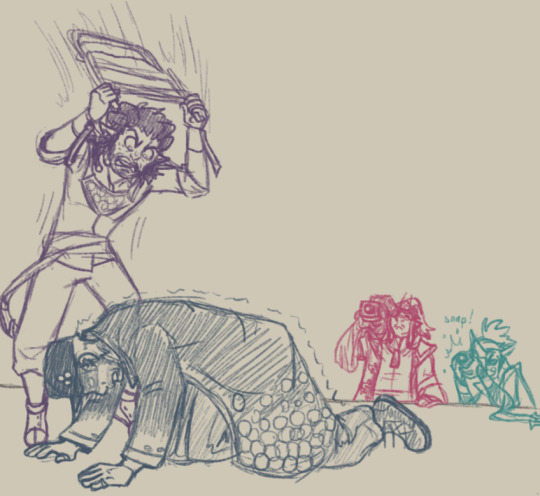
Watch out Albrecht, the animals you experimented with and subsequently traumatized have opposable thumbs now
#Cheri Art#Warframe#Warframe Fibonacci#Warframe Tagfer#Warframe Bird 3#Albrecht Entrati#sorry girlies Old Man Yaoi doesn't make Albrecht exempt from facing the consequences of his VARIOUS MORAL FAILINGS
216 notes
·
View notes
Text

#fuck diet culture#wellness culture#self care#take care of yourself#chronic illness#spoons#self compassion#be kind to yourself#healing#recovery#doing your best#mental health#body image#body positivity#body neutrality#treat yourself like you'd treat a good friend#your body is not a moral failing
321 notes
·
View notes
Text
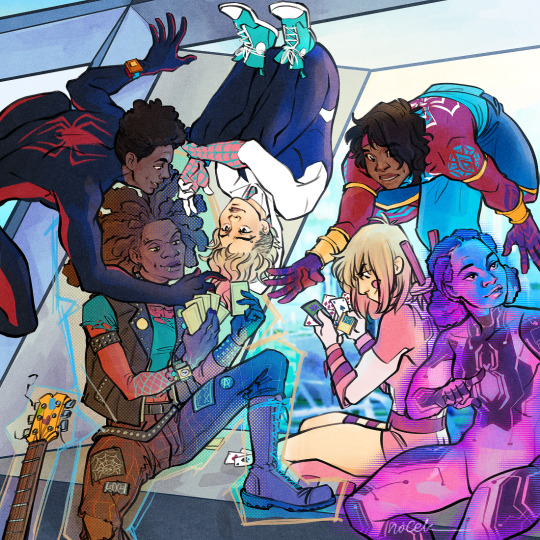
it's meant as a first panel in comic but you know what, with amount of work (to figure out how to do "special effects" on Hobie and Margo as efficiently as possible) I poured into it it deserves separate post ;P
oh and if somebody is interested sketch version is here actually I'm quite proud it only took 4 days to finish, felt much longer >.<
#spiderverse#across the spiderverse#miles morales#gwen stacy#pavitr prabhakar#margo kess#gwen poole#hobie brown#spiderman#spider gwen#ghost spider#spider punk#gwenpool#spider byte#spiderlings#i love them to bits#but damn#that was a lot to draw even if i was trying and failing to do it as sketchy as possible
2K notes
·
View notes
Text
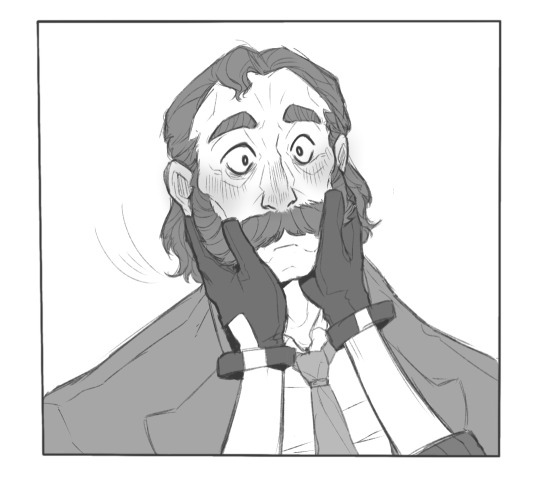
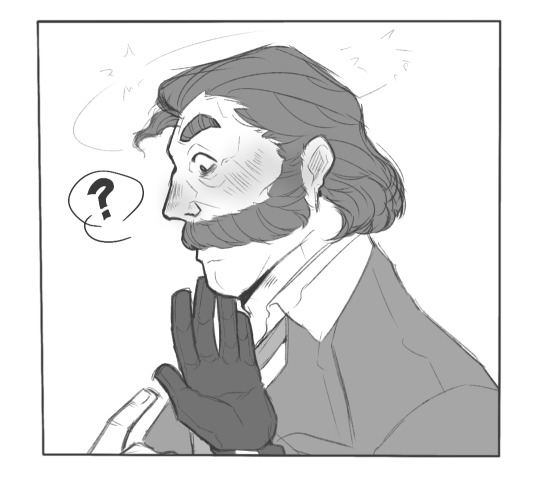
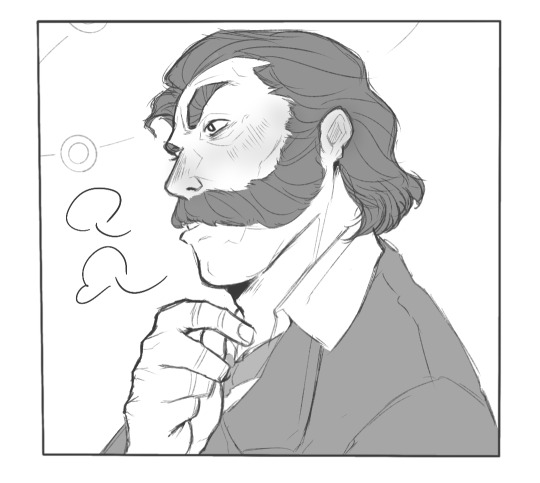
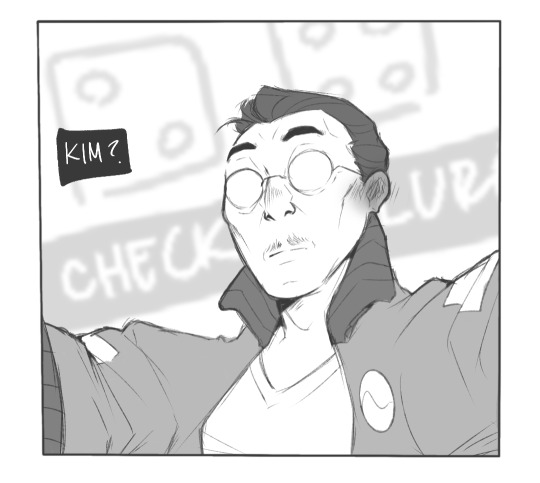
Kim got like 2 points in Physical Touch
#he fails the check but harry kisses him on the forehead#something something healed morale damaged health#yes i support the 'only kim's ears blush red' agenda#harry du bois#kim kitsuragi#tequila sunrise#disco elysium#disco elysium fanart#artists on tumblr#fanart#de#kimharry
4K notes
·
View notes
Text

the siblings
#i'm so sorry for the lack of kiddos 😞 a moral failing on my part#also this is a moment from grains recent vid if ur wondering#grian fanart#pearlescentmoon fanart#hermitcraft fanart#hermitcraft s10#digital art#my art#kiddo au
561 notes
·
View notes
Text
"if shermie is the baby in A Tale Of Two Stans then according to The Rest of the timeline he would've been a teen parent, and then dipper and mabel's parents would've been also, which would be kinda fucked up" I mean yeah alright. my mom had my brother when she was 17 and his dad was 16. I'm not saying it's a Great or even a particularly good thing but it does happen. the pines family is already so fucked up let's just add teen pregnancies to the mix. dipper and mabel's parents are getting divorced like canonically. their divorce is what kicks off the show
#words from the monarch#shermie being An Older Brother and the baby is his kid is interesting also and From Hwat Ive Heard is what alex is leaning towards now#ANYWAY THIS IS NOT TO SAY teen pregnancy is a personal moral failing or anything. im just really not sure A Teenager is truly ready for tha#im older now than my mom was when she had my brother. i think abt that. i could never be ready for that. but she had to be. bc it happened.#she became a mother before she was legally allowed to drink.#IM OLDER NOW THAN SHE WAS WHEN SHE HAD ME. I JUST REALIZED TGAT ALSO. JESUS CHRIST.#gravity falls#sorry is this tmi. i saw a video on gravity falls' timeline and was thinking#ask to tag
345 notes
·
View notes
Text
Ngl it really peeves me when the debate about Jason's ethics regarding killing in the batfam mixes up the question of him being a moral character in regards to sticking to his own philosophy (aka compromising with what he thinks is right to salvage relationships, but also exploding trains to evade capture, killing random goons in a gang war, etc) and the question of him being a moral character in regards to whether his philosophy is right. And even with regards to his philosophy there is his philosophy on politics, crime control and harm reduction, and his ethical philosophy itself (utilitarianism, aka focusing on intended positive consequences of actions for the greater good rather than the action being fundamentally moral or immoral in itself). Those are different things. Those require different debates and should not be conflated together. I'm not even saying Jason is right! I think utilitarianism and deontology both suck and fail at providing sufficient guidelines for moral behaviour. ("Everybody still loses" like the nihilist clown says. The symbolism of that one scene is pretty cool on that regard.)
And I think some people at dc would very much like for you to make the connection that because Jason is harming civilians/killing unnamed goons, he is a bad person, and as such you don't need to examine the way his stance on moral philosophy (utilitarianism) opposes Batman's. But that's not right, they don't get to wiggle out of the fact that utilitarianism vs deontology is a complicated debate that has been going on for ages, that there is no clear-cut answer where Batman fundamentally comes out on top, they don't get to use the fact that Jason (in the era currently discussed) is a villain to saddle us with a false dichotomy of "well jason is wrong about stuff so batman has to be right" to avoid addressing the actual question. The traits of the people being tied on the tracks do not change the shape of the trolley problem. The traits of the person deciding to pull the lever do not change the shape of the trolley problem. It's still one lever, three people tied on one track, one on the other, do you pull the lever. That's it. Yes, bending the metaphor to address other questions (such as "who keeps tying people to the tracks" to question systemic violence or "how does my bias, my prejudice and empathy impact my decision to pull the lever depending on who is on the tracks") are interesting but that's not what the debate is about. If I wrote an essay about the trolley problem in high school and focused primarily on the nature of the people being tied on the tracks, I'd get a big fat zero with "off-topic" written in red all over my essay, so I'm not inclined to allow DC comics to get away with it.
#you can demonize the character with the opposing stance to batman all you want dc#you can make them the most absurdly evil asshole of all times#if they has a valid point in a moral argument their point is still valid regardless#it's a trap#dc#dc critical#dc comics#jason todd#under the red hood#fandom discourse#i'm still just as bad at tagging and wrote another essay on accident again#batsalt#because I made a later post about how the nature of the people on the tracks in fact matters here's a clarification:#the distinction is only pertinent once you've accepted that 1 the debate between utilitarianism and deontology is real#and 2 deontology fails to give a satisfying answer to our emotions and empathy and the role they play in morals#by which I mean once you accept that deontologist vs utilitarianism is a false dichotomy of options#you can't use arguments against utilitarianism to support deontology#Jason being wrong about who to kill does not mean bruce is right. and does not mean Jason is wrong about killing as a concept. aaaargh
207 notes
·
View notes
Text
i think it's interesting that the harry potter series holds up the weasleys as the 'poster child' poor family but given that they are supporting 9 people on Arthur's single salary they aren't doing THAT badly. Yes there's a lot of stuff they can't afford and they have to be careful with their budget but they still seem to live in relative comfort, especially given the large size of their family - there's always enough food on the table, almost all the family members seem to have their own room without having to share, they don't worry about losing their home, the kids don't feel pressured to work during summers to earn enough money so their family can get by, the house is in relatively good condition etc.
this is not to say that you cannot be poor and also have basic comforts or that someone cannot suffer from financial hardship even if they aren't literally starving on the street. but it's striking because of how much more sympathetically the narrative frames the weasleys' poverty than it does the poverty experienced by snape or tom riddle or the gaunts. all these characters are not 'good victims' and do not cope as gracefully with their circumstances without complaining or showing visible signs of it in ways that might make make people uncomfortable. and idk. it's weird and I'm not sure I like it.
#do the weasleys have anything close to what he malfoys have? no. but the malfoys are fabulously wealthy.#im sure child!snape would've given almost anything to be able to grow up in a home like what ron had#it's like as soon as characters are poor in a way that might make people uncomfortable jkr wants us to blame the character#and see it as a sign of their moral failings#idk. what do you all think?#gen#Harry Potter
543 notes
·
View notes